Below, please find the link to my full audio interview with Brother Antoine Medley, Host, The Forced Pivot podcast. Afterwards, share your thoughts in the comments section below.
Stay blessed, and continue being blessings.
Below, please find the link to my full audio interview with Brother Antoine Medley, Host, The Forced Pivot podcast. Afterwards, share your thoughts in the comments section below.
Stay blessed, and continue being blessings.
Did you know that only six percent of traditionally published books among U.S. authors are written by black people?
I didn’t either until one of the organizers of the BLACK WORD MAGIC Authors, Illustrators and Publishers Fair made me aware of this fact during a lengthy telephone conversation in early August 2023. For the longest time, I thought this percentage was much higher, largely due to the success achieved by authors like Alice Walker (The Color Purple) and Terry McMillan (Waiting to Exhale), as well as the late E. Lynn Harris (Invisible Life) and Eric Jerome Dickey (Milk in My Coffee) during the 1990s and early 2000s.
While I had no reason to doubt the BLACK WORD MAGIC organizer’s report, I had to uncover these facts for myself. That’s when I came across an online article, written by Dimitrije Curcic (May 12, 2023), titled Black Author Statistics.
Curcic writes that while the number of black authors among U.S. authors stands at 6.28 percent, the share of black authors among all U.S. authors increased by 19.29 percent in 2020 compared to 2019. “With this huge jump occurring in 2020,” Curcic writes, “black authors were able to recover their 2014 numbers when it came to their share among all authors in the country.”
So, does this mean traditional publishers are more willing than not to publish books written by black authors?
Maybe.
When I continued my reading of Curcic’s online article, I learned that:
The first question we black authors must ask ourselves is, “What costs must we pay to become published authors?” After this question has been answered, we must then determine if the black author-written books currently being sold are written in such a way as to not make white people feel uncomfortable. Knowing the latter will let us know whether the publishing industry continues to allow white prejudice, racism, discrimination and bias to determine which titles are worthy of traditional publication.
The Big Five Publishers – Penguin/Random House, Hachette Book Group, Harper Collins, Simon and Schuster and Macmillan – are not oblivious to the well-funded movement among white American conservatives calling for the banning of books promoting diversity, equity and inclusion. They also aren’t oblivious to this assertion by white American conservatives that American teachers are teaching Critical Race Theory when they reference history specific to black Americans’ struggle for freedom, equal rights and protections under the law. I write this because the publishing industry, just like the Oscars, has always been so white, seemingly suppressing black narratives so members of the white majority won’t be offended.
But know this: white audiences want to read these black narratives. The enlightened members of the white majority want to understand our struggle so they can work with us Blacks to right their white ancestors’ wrongs. More than anything, at least two-thirds of them want to stop the practice of harboring prejudice and bias toward us Blacks, for they know a focus on others (Blacks and other nonwhites) rather than themselves, their racial group, is the key to helping the American union become more perfect.
That’s why the banning of black books and the censorship of Black History are wrong. We Blacks did not achieve victories during Reconstruction and the Civil Rights Movement of the 1950s and ’60s to see a small group of unenlightened, white American conservatives cry foul about how these books and this history make K-12 children and adolescents hate their country. Truly concerned white adults recognize these statements for what they are – lies – and should want their children to read black books and learn Black History so their children can get in touch with their selfless selves. The selfless self demands that one do unto others as he or she would have others do unto themselves. In the words of singer Aretha Franklin, all we Blacks want is a little respect, public displays of sacrificial affection.
But as I sat at my vendor booth at the BLACK WORD MAGIC Fair, watching avid readers of all racial hues flip through the pages of their next great black reads, I concluded that more work needs to be done to get black books into the hands of a diverse group of readers, including Whites. While we black authors have an obligation to write stories that speak to black people’s experiences in America, the fact still remains that many of us black authors just want to produce content that entertains, educates and enlightens.
There are a number of black-owned and operated publishing houses. I found 191 of them on Troy Johnson’s African American Literature Book Club site. Johnson didn’t apply a ranking system to these entries (he organized them in alphabetical order), but ever since I started writing professionally, the ones that I have been hearing about the most are Third World Press, Just Us Books and Triple Crown Publications.
That’s why I’m a fan of the African American Literature Book Club. Johnson created aalbc.com as a place where readers can go to discover books written by both traditionally published and independently published black authors.
But we black authors also need to feel like we’re part of something much bigger than ourselves. That’s why I’m also a fan of the Black Writers Collective and the Hurston/Wright Foundation.
The administrators of the Black Writers Collective are committed to helping us members share and help each other become published authors through a mutual exchange of resources, insights, and sharing of experiences from which we grow.
Founded in 1990 by author Marita Golden and cultural activist Clyde McElvene, the Hurston/Wright Foundation offers in-person summer workshops, virtual courses and award ceremonies that celebrate and amplify black literary voices. Named after esteemed authors Zora Neale Hurston and Richard Wright, both Golden and McElvene believed more needed to be done to promote and honor African American authors.
But the black-owned and operated company that has been most responsible for helping me get the word out about my books is BlackPR.com. Founded by business entrepreneur Dante Lee nearly 25 years ago, BlackPR.com offers the most extensive press release distribution to the Black media that I have seen, and has served over 5,000 clients.
That being said, while it is true only six percent of traditionally published books among U.S. authors are written by black people, the fact remains that we black people are never going to stop writing, sharing our individual and collective truths. If we have the audacity to call ourselves creative writers, our intent is to produce written works that entertain, educate and enlighten. Once our written works have been produced, it is our hope there will be readers standing at the ready to support our efforts with their dollars.
To support my efforts with your dollars, visit my Amazon Authors Page.
In the summ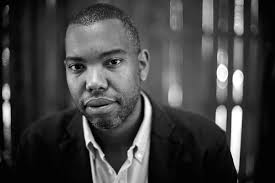 er of 2001, my family and I moved into the Prospect-Lefferts Garden neighborhood in Brooklyn, New York. I was 25. My partner was 24. Our son was 11 months. Prospect-Lefferts Garden is a lovely neighborhood marked by quiet streets and some of the most beautiful architecture in the city. There are several blocks lined with perfectly preserved limestones and brownstones. There is a strong sense of community. Block parties are a tradition. And for those of us who fear the suburbs, Flatbush Avenue hums at the neighborhood’s border. When we moved into the neighborhood, it was predominantly black. A haircut was a two-minute walk away. Great jerk chicken was everywhere. My best friend from college lived on the same block. On Friday evenings you could find us out on his stoop with Jack and Coke in hand (which we drank that back then), watching the world go by.
er of 2001, my family and I moved into the Prospect-Lefferts Garden neighborhood in Brooklyn, New York. I was 25. My partner was 24. Our son was 11 months. Prospect-Lefferts Garden is a lovely neighborhood marked by quiet streets and some of the most beautiful architecture in the city. There are several blocks lined with perfectly preserved limestones and brownstones. There is a strong sense of community. Block parties are a tradition. And for those of us who fear the suburbs, Flatbush Avenue hums at the neighborhood’s border. When we moved into the neighborhood, it was predominantly black. A haircut was a two-minute walk away. Great jerk chicken was everywhere. My best friend from college lived on the same block. On Friday evenings you could find us out on his stoop with Jack and Coke in hand (which we drank that back then), watching the world go by.
Click here to read the rest of the story.
Discovered this video on YouTube. Haven’t used it for a writing session yet, but I intend on doing so within the next few days.
This is on my to-do list. Just need to write the script and get with the right artist.
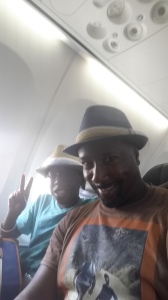 TO PURCHASE J. A. FAULKERSON’S “ADINKRAHENE: FEAR OF A BLACK PLANET”, CLICK HERE.
TO PURCHASE J. A. FAULKERSON’S “ADINKRAHENE: FEAR OF A BLACK PLANET”, CLICK HERE.
On June 23rd, I received an email from Max Rodriguez, founder of the Harlem Book Fair, which, in 2015, celebrated its 17th year of operation. He advised that my debut novel, Adinkrahene: Fear of a Black Planet, had been selected as one of three finalists for a Phillis Wheatley Book Award.
To say I was elated would be an understatement. I was overjoyed, unashamedly floating above, and well beyond, the stratosphere. But now that this news had been shared with me, I found myself sitting on pins and needles in anticipation of being named the First Fiction Book Award winner at the July 17th awards ceremony, which was held on the campus of Columbia University.
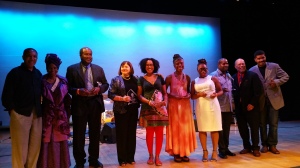 I didn’t win that day. Neither did the other finalist, Amaka Lily, for Shifting Allegiances: A Nigerian’s Story of Nigeria, America and Culture Shock. The award went to Nigeria Lockley for her debut novel Born at Dawn.
I didn’t win that day. Neither did the other finalist, Amaka Lily, for Shifting Allegiances: A Nigerian’s Story of Nigeria, America and Culture Shock. The award went to Nigeria Lockley for her debut novel Born at Dawn.
I think my 11-year-old son took this news the hardest. When New York Times bestselling author Omar Tyree announced the winner, my son exclaimed, “Aw, man! I wanted you to win!”
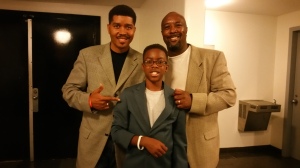 All I could do was peer over and down at him, a smirk masking my disappointment. “It’s okay, buddy,” I told him. “I’m honored from just being named a finalist.” Then, without skipping a beat, I added, “Maybe next year, we can both enter something.”
All I could do was peer over and down at him, a smirk masking my disappointment. “It’s okay, buddy,” I told him. “I’m honored from just being named a finalist.” Then, without skipping a beat, I added, “Maybe next year, we can both enter something.”
He smiled at that.
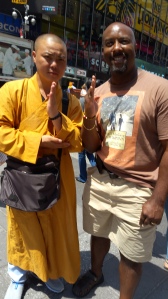 What my son didn’t know was our NYC weekend would be special not because I was being considered for a prestigious award – even though it would have been nice to have won it. It would be special because I was spending it with him. Even before we boarded the Metro train on 72nd Street for the short ride Uptown to Columbia University, we had spent the early afternoon sightseeing in Times Square and eating lunch at the Bubba Gump Shrimp Company.
What my son didn’t know was our NYC weekend would be special not because I was being considered for a prestigious award – even though it would have been nice to have won it. It would be special because I was spending it with him. Even before we boarded the Metro train on 72nd Street for the short ride Uptown to Columbia University, we had spent the early afternoon sightseeing in Times Square and eating lunch at the Bubba Gump Shrimp Company.
While walking the streets in and around Times Square, I received a peace blessing from a Chinese monk.
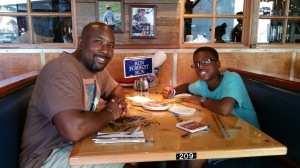 My son marveled at the sight of a woman dressed as the Statue of Liberty (standing completely still for several, long minutes), and the Naked Cowboy playing his guitar, curbside, for his adoring female fans.
My son marveled at the sight of a woman dressed as the Statue of Liberty (standing completely still for several, long minutes), and the Naked Cowboy playing his guitar, curbside, for his adoring female fans.
And I fought, to no avail, to avert his eyes as we walked past two women clad in body paint, high heel shoes and shiny shorts that left little to the imagination.
The next day, Saturday, we walked from the Hotel Beacon to the Starbucks across the street for breakfast. After we received our breakfast orders, I explained the game plan to him. We would catch the Metro on 72nd Street for the short ride Uptown to 135th. Once there, we would locate our vendor booth along a street next to the Countee Cullen Library for the daylong Harlem Book Fair. From there, we would proceed to sell our books to the hordes of readers that would be swarming around our booth.
He nodded, letting me know he was game. But then it happened. It started raining, cats and dogs really. All I could do was nod my head as my heart sank. We had flown from Dallas to New York City to sell our books, and now we were going to be forced to contend with the rain.
The two previous times I had attended the fair, rain had never been in the forecast, only sunny skies and the accompanying heat. Lucky for us, the rain went from a torrential downpour to a sprinkle. And by the time we emerged from the 135th Street subway station, it had stopped completely.
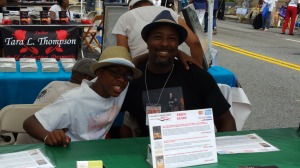 Selling books at the Harlem Book Fair was a transformative experience for my son and me. As people stepped to our table to inquire about our titles, we had to dig deep to give them good reasons to purchase them. I told them that the first book in the Adinkrahene series is all about introducing readers to a new reality, one in which a select group of Black men and women (100 total) are lower-case gods, and they mainly use their supernatural abilities to establish peace and prosperity for all, not exact vengeance upon their enemies, the Anglo-controlled (but Satarian-possessed) Corporate Cabal.
Selling books at the Harlem Book Fair was a transformative experience for my son and me. As people stepped to our table to inquire about our titles, we had to dig deep to give them good reasons to purchase them. I told them that the first book in the Adinkrahene series is all about introducing readers to a new reality, one in which a select group of Black men and women (100 total) are lower-case gods, and they mainly use their supernatural abilities to establish peace and prosperity for all, not exact vengeance upon their enemies, the Anglo-controlled (but Satarian-possessed) Corporate Cabal.
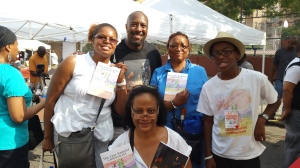 My son told his readers that the Leaf Knight (from his The Leaf Knight Chronicles: The Knightly Origins) is an 11-year-old boy destined to fulfill a prophecy. And when he added that the story and illustrations were all penned and drawn by him, these same readers didn’t hesitate to reach for their wallets (and purses) and pay him for autographed copies of his book. All this proud poppa could do was smile, because it became crystal clear to me that, on this day at least, he would be the most popular author working under the Culturally Coded Content banner.
My son told his readers that the Leaf Knight (from his The Leaf Knight Chronicles: The Knightly Origins) is an 11-year-old boy destined to fulfill a prophecy. And when he added that the story and illustrations were all penned and drawn by him, these same readers didn’t hesitate to reach for their wallets (and purses) and pay him for autographed copies of his book. All this proud poppa could do was smile, because it became crystal clear to me that, on this day at least, he would be the most popular author working under the Culturally Coded Content banner.
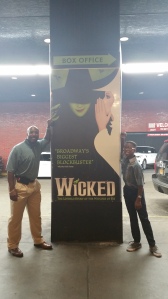 We celebrated that night by going Downtown to see the Broadway play Wicked. Seeing this play had been on my to-do list since my days as Director of the Bruce Wells Scholars TRIO Upward Bound Program (2001-2005). That was more than 10 years ago. But as I sat there, with my son, watching actors bring novelist Gregory Maguire’s words to life, I daydreamed about what life would be like to have stage and screen actors do the same for my novels, short stories and screenplays.
We celebrated that night by going Downtown to see the Broadway play Wicked. Seeing this play had been on my to-do list since my days as Director of the Bruce Wells Scholars TRIO Upward Bound Program (2001-2005). That was more than 10 years ago. But as I sat there, with my son, watching actors bring novelist Gregory Maguire’s words to life, I daydreamed about what life would be like to have stage and screen actors do the same for my novels, short stories and screenplays.
Only time will tell. My son and I just have to keep doing what is necessary to grow as writers.
When I first started this journey, my goal was not to become a hack, kicking out book projects that didn’t add value to readers’ lives. My goal has always been to produce creative works that speak to the relationships that we humans share, both individually and collectively. Having my debut novel selected as a finalist for the 2015 Phillis Wheatley First Fiction Book Award lets me know I’m a good writer. I must now be about the business of becoming a great one.
###
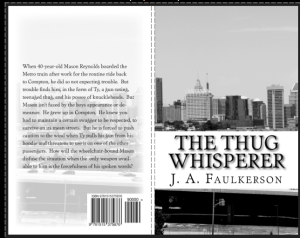 “That’s my seat,” the Black, teenage thug loudly exclaims as he, and three of his boys, all Black, step off the platform and into the subway car. “Get up.” I watch as his large hands become fists and he steps closer, invading the suited, White man’s personal space. “Now.”
“That’s my seat,” the Black, teenage thug loudly exclaims as he, and three of his boys, all Black, step off the platform and into the subway car. “Get up.” I watch as his large hands become fists and he steps closer, invading the suited, White man’s personal space. “Now.”
The stern expression on the suited, White man’s face lets me know he’s not accustomed to backing down from a fight. But this fight is one he knows he can’t win. The tightening of his grip around the briefcase in his lap lets me know he’s protecting something of value, a laptop computer perhaps. He has probably ridden the Metro numerous times, from Downtown Los Angeles to the M.L.K. Transit Center/Compton Station, but this is the first time he has been accosted by the local thugs.
I almost feel sorry for the man. Like me, all he wants to do is get home without incident after spending eight hours or more at the office. I have him pegged as a show runner with one of the local studios, but the pocket-protected pens and markers in the front, left pocket of his button-down shirt gives me second thoughts.
He undoubtedly is an accountant at one of the local banks.
But how can I feel sorry for him? My skin is as dark as the pesky thug’s. By virtue of being born Black, I’m supposed to side with him, right?
Stick it to the White man, take what they are unwilling to relinquish on their own, right?
The Black, teenage thug grabs the man by his collar, effortlessly lifts him from the seat. Members of his entourage snicker in the background, patiently waiting on the punch line to some sick joke. Hanging from the Black, teenage thug’s bent arm now, the suited, White man nervously looks up at him, seeking permission with his eyes to be excused.
The Black, teenage thug releases him. The suited, White man immediately turns on his heels to seek refuge in the adjoining car. The Black, teenage thug claims the now-empty seat, high-fiving a lighter-skinned member of his entourage.
An angry scowl on the face of the old, White man seated just to the right of me doesn’t go unnoticed. He is dressed in all black, with a preacher’s collar, and the little hair that remains on his head is combed over to cover a bald spot.
“You need to stop eyeballing me, old man,” the Black, teenage thug says, his unbelted, denim jeans now six inches below his waistline. He stands briefly to pull his pants up over his boxers, then sits. His gaze falls on me.
Pointing, he says, “Hey, y’all, look at Wheels over there.” Eyes above smiling faces now shift to me.
“Bet not get him mad, Ty,” a member of his entourage interjects. “He’ll run you over.”
“Why do you people act the way you do?” Preacher Man gruffly says, his arms crossed.
The Black, teenage thug now known as Ty doesn’t hear him, but a member of his entourage does. “What’s that you say, old man?” the member asks. Everyone’s attention shifts to Preacher Man as the thug who heard him stands, readying himself for a fistfight.
Preacher Man continues, “We give you space, yet you still feel the need to mock and terrorize us. Why? For laughs? I think not. You don’t care. About yourselves, the legacy of your people.”
Ty leaps from his seat while reaching for the revolver in his right jacket pocket. He stands in front of Preacher Man, his revolver pressed firmly against Preacher Man’s temple. Preacher Man’s arms are at his sides now, and his eyes are shut. Must be making amends with God, for he probably fears the end is near.
“He’s right, you know?”
Ty turns to me, revolver still pressed firmly against Preacher Man’s temple.
“You don’t care. About yourselves, the legacy of our people.”
Copyright 2015. Jeffery A. Faulkerson. All rights reserved.
CLICK HERE TO PURCHASE “THE THUG WHISPERER”
CLICK HERE TO PURCHASE J.A. FAULKERSON’S DEBUT NOVEL, ADINKRAHENE: FEAR OF A BLACK PLANET.
Saturday mornings used to be a time of discovery and bewilderment for me. As a young child growing up in Upper East Tennessee, I would wake up most mornings to pancakes and cartoons. As I ate the pancakes that my mother prepared for me, I allowed myself to get lost in the lives of these make-believe characters. Some of my favorites were The Flintstones, Super Stretch and Mirco-Woman, Jonny Quest, The Jetsons, Scooby-Doo, Spider-Man and His Amazing Friends, Super Friends, and Clue Club, to name only a few. With the advent of Boomerang, at 46 years of age, I am discovering that I’m most creative when familiar voices and tunes can be heard in the background during my writing sessions.
Some would argue that being torn between the computer and television screens causes writers to lose their momentum when crafting stories. I wouldn’t argue with that. I undoubtedly would be even more productive if I didn’t take those quick glances to see Jonny and Hadje floating on a hovercraft with Race Bannon, their bodyguard. And Lord knows Fred and Barney’s verbal volleys turn quick glances into lingering ones. But for me, hearing their voices takes me to a place where life was much simpler, less stressful.
 Most of you know, I was raised by a once-poor, single-parent mother. You would think growing up in a low-income household would be more complex and stressful. But it wasn’t, at least for me. I was a daydreamer, and the Saturday morning cartoon line-ups on NBC, CBS and ABC enriched the dreams that I would have as I peered out the window of our two-story, subsidized apartment complex.
Most of you know, I was raised by a once-poor, single-parent mother. You would think growing up in a low-income household would be more complex and stressful. But it wasn’t, at least for me. I was a daydreamer, and the Saturday morning cartoon line-ups on NBC, CBS and ABC enriched the dreams that I would have as I peered out the window of our two-story, subsidized apartment complex.
Because I am now using my time as a stay-at-home parent to more fervently pursue my writing career, I often find myself rushing to complete my daily five-page quota. Even as I write this blog entry, I worry about not reaching my daily goal. My time has been spent with you, not with the new novel that has nothing to do with my Adinkrahene series. In a few hours, I have to pick my son up from summer day camp and then drop him off at a summer academic enrichment program. As his father, I want to put him in a position to have fun during his 10-week summer break, but then start the new school year with a head of steam.
Then there’s my wife’s honey-do list. At times, working through this list can take precedence over my writing. Yes, there are times when I balk. All I want to do is write, read, and watch old, black and white science-fiction movies on the Syfy Channel. But my primary job is to take care of things around the house so my working wife doesn’t have to. You’ll have to ask her, but I think I’m doing a pretty good job, most of the time.
But I digress.
The Saturday morning cartoon line-up made living in a low-income community bearable. Because I grew up in a small town in Upper East Tennessee, I was somewhat immune to the troubles plaguing major cities like Chicago, New York and Baltimore. But drugs like marijuana and cocaine were reportedly readily available to anyone who was willing to pay the piper. Some of the kids I grew up with were even recruited by irresponsible adults to become drug pushers. As I reflect on my life now, I realize my saving grace was my acceptance of Jesus Christ as my Lord and Savior, followed by my love for Saturday morning cartoons and comic books.
 While other kids were hanging out on the street on Saturday mornings, I was either watching shows like Super Stretch and Micro-Woman, or reading Richie Rich comic books. I also was getting into the habit of reading the Christian bible daily. At the time, I didn’t know these activities would lead to me wanting to become a professional writer. I was more concerned about going on an imaginary journey with the characters I saw on screen or read about in my comic books.
While other kids were hanging out on the street on Saturday mornings, I was either watching shows like Super Stretch and Micro-Woman, or reading Richie Rich comic books. I also was getting into the habit of reading the Christian bible daily. At the time, I didn’t know these activities would lead to me wanting to become a professional writer. I was more concerned about going on an imaginary journey with the characters I saw on screen or read about in my comic books.
I even received cartoon fixes during the week. I still remember those days when I would come home from school to watch shows like Space Giants, Tom & Jerry and Woody Woodpecker. There was also the after-school specials on ABC that offered up inspiring stories about living life purposefully and responsibly.
The Saturday morning cartoon line-up introduced me to quirky characters. Some of the most quirky ones were George Jetson and Fred Flintstone, as well as Scooby-Doo and Shaggy. These characters are now considered icons because they were introduced during a time when life was, well, much simpler and less stressful. We didn’t have computers connected to the World Wide Web then. Our color television sets, with metal clothes hanger antennae, were our only conduits to the outside world.
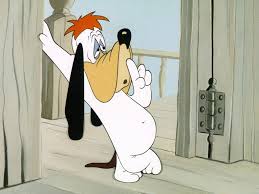 The Saturday morning line-up fueled my imagination, my love for writing novels and screenplays. When I went on these journeys with these imaginary characters, I felt like I was right there with them. It was great being there with Jonny Quest on a mission in a South American rain forest. It was also great being there with the mouse Jerry as he outsmarted the cat Tom for the umpteenth time, or hearing the dog Droopy say, “You know what? I’m sad.” These characters, and others, gave me an appreciation for showing not telling, as well as how to take your characters through a series of complications before reaching the climax. That’s not to say, I’ve mastered these skills. The road ahead is long, steep and winding. I just want to be as creative as I can be so you can use your five senses to fully embrace the literary meals I have prepared, and continue to prepare, for you.
The Saturday morning line-up fueled my imagination, my love for writing novels and screenplays. When I went on these journeys with these imaginary characters, I felt like I was right there with them. It was great being there with Jonny Quest on a mission in a South American rain forest. It was also great being there with the mouse Jerry as he outsmarted the cat Tom for the umpteenth time, or hearing the dog Droopy say, “You know what? I’m sad.” These characters, and others, gave me an appreciation for showing not telling, as well as how to take your characters through a series of complications before reaching the climax. That’s not to say, I’ve mastered these skills. The road ahead is long, steep and winding. I just want to be as creative as I can be so you can use your five senses to fully embrace the literary meals I have prepared, and continue to prepare, for you.
CLICK HERE TO PURCHASE J.A. FAULKERSON’S DEBUT NOVEL, ADINKRAHENE: FEAR OF A BLACK PLANET.
CLICK HERE TO PURCHASE J.A. FAULKERSON’S DEBUT NOVEL, ADINKRAHENE: FEAR OF A BLACK PLANET.
After completing ADINKRAHENE: Fear of a Black Planet, I was torn between revamping one of my old novels or starting a new one. I ultimately decided to start from scratch. But now that I have more time to dedicate to my writing, I must once again display the same kind of discipline that enabled me to become a published novelist.
Fortunately for me, I have 21 pages of an unfinished screenplay to work from. Like all screenplays, it was written in the third person, in the active voice. The writing style is short, choppy, to the point. The biggest challenge for me, however, has been staying true to the story that I was trying to tell through the screenplay. I just have to avoid the temptation to write, well, short, choppy and pointed prose.
Short, choppy and pointed is great for screenplays, but not novels. When you’re writing a novel, you have to use the canvas of the reader’s mind to paint the settings and establish distinctive moods with your play on words. More importantly, the reader should be able to see your characters for who and what they are. Some will be perfect, others imperfect. They will also have mannerisms that are uniquely suited to them.
When I was a full-time employee, I used my hour-long lunch breaks to create content. Yes, there were days when I wanted to put the project down and just savor my lunch. There were also days when I wanted to chat more with my co-workers. But I knew if I did that, I would never be able to type that last sentence, or share my published novel with the world. I was on a mission: publish a 50-100,000-word novel by the end of May 2014. I achieved that goal, and I have been satisfied with the opportunities that have opened up to me as a result.
In June 2014, I appeared on TV One’s Newsone Now with Roland S. Martin. I enjoyed chatting with Roland about my life as a stay-at-home parent. But I’m not going to lie; it felt good when he introduced me as “Novelist Jeffery A. Faulkerson.” Even though I didn’t get a chance to publicize my debut novel, Roland’s introduction was a recognition of my hustle.
Next up is the National Black Book Festival in Houston, Texas. This event has been on my radar for years because it is one of many places where authors like myself get a chance to interact with new readers. These new readers will have questions about my novel, and I will count it a privilege and honor to be there to offer detailed responses. And if members of the Adinkrahene Nation (i.e., purchasers of my novel) are present, I look forward to collecting input for Book Two: Fear of a Beloved Community and Book Three: Fear of an Alien Presence.
As I lay the foundation for the writing of these books, I feel the need to study the writing of iconic writers. I am currently reading Octavia Butler’s Kindred. It’s a science fiction masterpiece that has the main character time shifting from Butler’s present to the antebellum South. I’m loving this piece, especially after reading Rom Wills’ The Sankofans novella. Butler’s novel is intriguing, and, at times, I have a difficult time putting it down.
My current project has nothing to do with science fiction. It’s a sports drama. Like I said before, my initial intent was to complete the screenplay, submit it to an agent, and then pray he would be able to pitch it to one of the Hollywood studios. I guess at the time I feared success. The only thing I did in 2013 to promote my story ideas was participate in a pitchfest event at the Screenwriters World Conference in Los Angeles, California. Don’t get me wrong; reciting memorized loglines and summaries for prospective buyers is great practice for making sales. But during my brief conversation with some of these buyers, I knew I sounded a lot like Charlie Brown’s teacher. I should have realized right then and there that my story ideas were better suited for the people, and the quickest way to get the same to them was through self-publication.
In his song Lose Yourself, rapper Eminem tells us that we only have one shot to blow (up). I don’t know what the future holds for me. I honestly can’t tell you if my writings will “blow up” one day, make J. A. Faulkerson a household name. All I know is I can’t be concerned with such nonsense. Offering up stories that resonate with you, my loyal readers, is paramount. And if you keep meeting me halfway by purchasing one of my products, I’m certain a new generation of Americans will understand the importance of co-existing.
Thank you for your support.
CLICK HERE TO PURCHASE J.A. FAULKERSON’S DEBUT NOVEL, ADINKRAHENE: FEAR OF A BLACK PLANET.
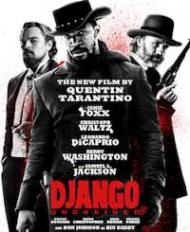 By now, many of you have seen the Quentin Tarantino film Django Unchained. I have watched it several times, and my admiration for the story, and the actors that brought it to life, continues to grow. But what you need to know about Django Unchained is it is the spark that moved me to write ADINKRAHENE: Fear of a Black Planet.
By now, many of you have seen the Quentin Tarantino film Django Unchained. I have watched it several times, and my admiration for the story, and the actors that brought it to life, continues to grow. But what you need to know about Django Unchained is it is the spark that moved me to write ADINKRAHENE: Fear of a Black Planet.
You see, Django Unchained is a story that casts a black man as the protagonist (I know, I know, Marc H. Django the hero didn’t kill Candy the villain, but he did get his woman back.). In an era where black men are rarely the ones saving the day, we have to tip our hats to Tarantino. He ran against the grain because he seemingly knows that we contemporary African Americans are still salty about the way our ancestors were treated. You could even argue that our ire is intensified even more when we see and hear Republican politicians and Conservative thought leaders attacking the gains that this country made during the Civil Rights Movement of the 1950s and ’60s. For some strange reason, these unenlightened Americans want their White American brethren to think something was taken away from them when this piece of legislation was passed. They’re wrong.
For this reason alone, I will be using this series of books to skewer the Republican Party. I assert that the Republican Party has been co-opted by the Corporate Cabal (i.e., White ruling class), and members of the Corporate Cabal have sold their souls to the demonic Satarian Empire. How else would you explain the GOP ‘s insensitivity to African-American challenges and concerns? The Devil must be making them do it. I just hope the unenlightened become enlightened through the reading of my words.
There has been talk that racism and discrimination are things of the past just because America elected its first, black president. Yes, electing Barack Hussein Obama as the leader of the free world is, and always will be, a good thing, but that doesn’t mean we’re now judging people by the content of their characters. If anything, the cracks in our unity are becoming more evident, and they are becoming more pronounced because GOP leaders don’t want to relinquish control of the plantation. But they have to relinquish control because we African Americans, like Django Freeman, will never again pick cotton…without compensation.
I still remember seeing an elderly, white woman dragging her husband out of the theater during Django Unchained’s opening weekend. This was done within the film’s first hour. She obviously was taken aback by the level of violence that Django, a black man, exacted against the bigoted, white slave owners. I readily agree that Tarantino’s brand of violence left little to the imagination. But why should it? We African Americans know that slave owners and Jim Crow criminals exacted a similar kind of violence against our ancestors.
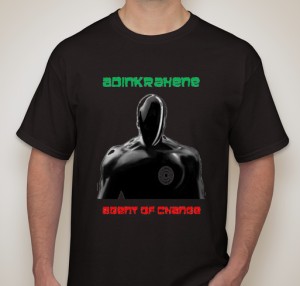 In ADINKRAHENE: Fear of a Black Planet, I give you a cast of altruistic black characters that have been chosen by the one, true God to rebuild what Dr. Martin Luther King, Jr. called the Beloved Community. But I counter their altruism with Black-Out, a black militia group that is committed to avenging the deaths of our fallen African and African-American ancestors by any means necessary. By pitting the Adinkrahene Reparations Management Syndicate (ARMS) against Black-Out, I hope you, the reader, will be able to see why all of us – red, brown, yellow, black and white – have been called to become Progressive agents of non-violent change.
In ADINKRAHENE: Fear of a Black Planet, I give you a cast of altruistic black characters that have been chosen by the one, true God to rebuild what Dr. Martin Luther King, Jr. called the Beloved Community. But I counter their altruism with Black-Out, a black militia group that is committed to avenging the deaths of our fallen African and African-American ancestors by any means necessary. By pitting the Adinkrahene Reparations Management Syndicate (ARMS) against Black-Out, I hope you, the reader, will be able to see why all of us – red, brown, yellow, black and white – have been called to become Progressive agents of non-violent change.
-0-